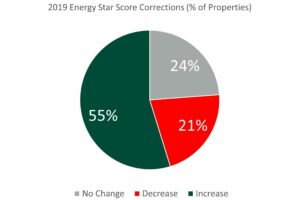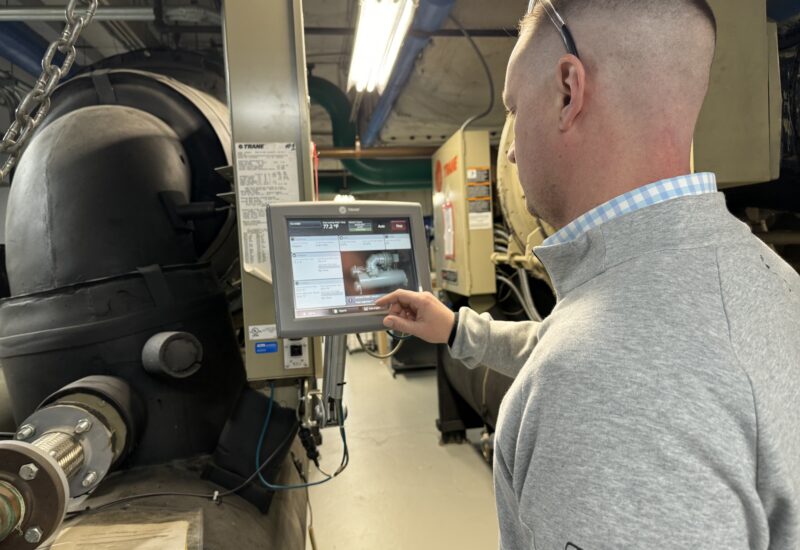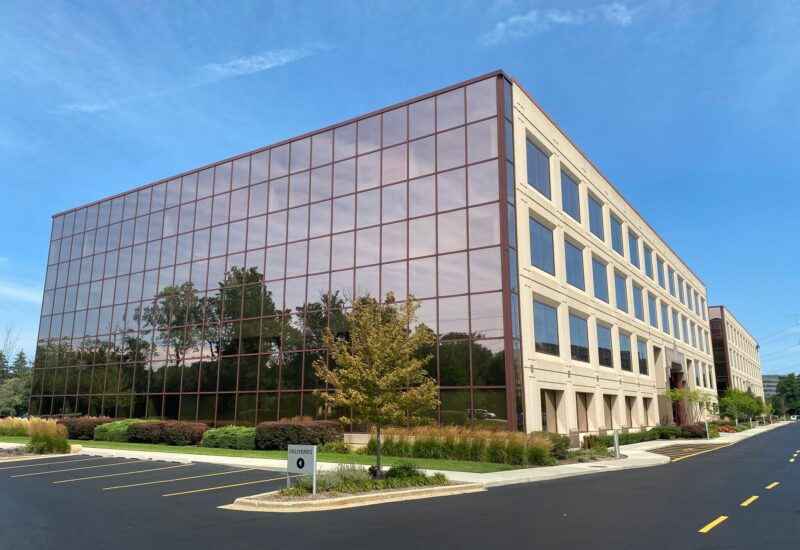For privately owned buildings greater than 25,000 square feet in Washington, D.C., 2023 building energy benchmarking data must be third-party verified. Benchmarking data verification is essential to fulfilling Washington, D.C.’s goals of promoting sustainable behaviors and enhancing building energy performance and is a key element of the city’s Building Energy Performance Standard (BEPS). An Approved District Data Verifier (ADDV) must be hired by property owners and must complete benchmarking verification by April 1, 2024.
Based on Baumann’s experience reviewing and verifying benchmarking data for over 100 D.C. properties, benchmarking data verification takes time. Property owners and managers need time to gather documentation, reviewers need time to check benchmarking profiles and data against available documentation, and property owners and managers need time to make updates and corrections. For properties that have many energy meters and that use aggregate meter data, additional time is needed to confirm that aggregate meter lists are correct.
Important Requirement: The ADDV cannot be the building owner, an employee of the building owner, nor the building owner’s designee, or an employee of that designee, who prepares or submits benchmarking information in Portfolio Manager for the building owner.

While you may be tempted to put off thinking about benchmarking verification until next year, our advice is that you do not wait. There are close to 2,500 buildings in D.C. that require third-party verification of the 2023 benchmarking and there is limited capacity to review and verify all that data. Qualified reviewers can get started now and put you in the position to have your data verified in time. While checking the accuracy of energy consumption data cannot be completed before the end of 2023, key building profile data such as square footage, number of occupants, number of units, number of bedrooms, number of computers, parking details, etc. can be reviewed now to ensure that they are correct and that proper documentation is available to back those entries up. Reviewers can also verify that you are capturing all your property’s meters and their related energy data that are required for proper benchmarking.
Here are the key steps to Benchmarking Data Verification:
- Select a Third-Party Verification Provider:
- Research and choose a reputable third-party verification provider with expertise in BEPS and building energy benchmarking in D.C.
- Consider their qualifications, experience, and track record in the field as well as connections to the D.C. Department of Energy and Environment in case clarifications are needed.
- Gather Building Benchmarking Data:
- Gather and compile all relevant building data, including energy consumption, square footage, occupancy, and operational details.
- Prepare utility bills and other energy-related documents for the specified time period (e.g., 2023).
- Share Data with the Verification Provider:
- Provide the collected building data and documents to the third-party verification provider.
- Ensure that the data are complete, accurate, and well-organized for efficient verification.
- Verify Data Accuracy:
- The verification provider will carefully review and analyze the building data to ensure its accuracy and completeness.
- They may cross-check the data with utility bills, conduct site visits, or request additional information if necessary.
- Provide Feedback:
- The verification provider will provide feedback regarding any data or profile entries that need to be updated or corrected.
- They will provide feedback as to whether your supporting documentation meets D.C’s requirements.
- Correct and Update Benchmarking:
- The building owner, manager, or designee will make the needed updates to the benchmarking profile and energy use data.
- They will also gather additional supporting documentation if needed and store this information for future reference. Data should be kept for eight years to comply with city requirements.
- Backcheck and Generate Verification Report:
- The verification provider will back-check the profile and data updates and prepare a verification report that certifies that the benchmarking data is correct.
- The report will be submitted to D.C. to comply with the regulations.
One last point to keep in mind is that building owners must ensure that their properties’ benchmarking is accurate. All benchmarking is potentially subject to audit and reviewed by the D.C. Department of Energy and Environment (DOEE). If DOEE finds that benchmarking data are incorrect, they may assess fines to the building owner. Effective third-party verification will help building owners avoid future complications.
Starting the verification process as soon as feasible is strongly advised to guarantee a quick and easy process. By acting now, it will be simpler to compile the required paperwork, work with qualified experts, and meet the verification deadline.
Are you ready to get started?








